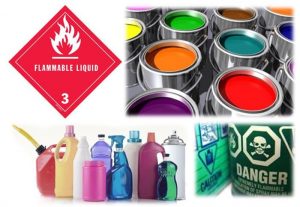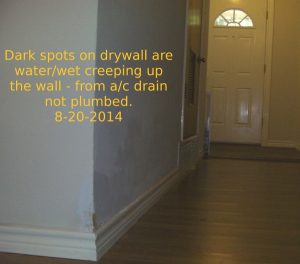INDOOR AIR QUALITY FAQS
Q: We just moved into an older home and my allergies are worse now. Could it be the ductwork?
Yes! Although you cannot see it, properly installed and correctly functioning ductwork is vitally important to the safe and efficient operation of your HVAC system or home air conditioning and furnace system.
Got allergies? Breaks in the air duct system can greatly degrade indoor air quality. Air duct breaks allow dust, fumes, insulation or even carbon monoxide to be circulated inside.
Deteriorating or broken air ducts increase allergies by circulating dust, dirt and insulation from the attic to the inside your home or office.
In older homes, as the foundation shifts over the years – ductwork pulls away from joins and can break.
Most older homes have several ductwork breaks and routinely lose conditioned air into the attic. And worse for allergies: air duct breaks usually result in attic air circulating into living spaces, bringing attic dust and particulates inside.
Q: What is SBS?
Sick Building Syndrome – sometimes called Building-Related Illness – is typically caused by indoor air pollution. This problem has become more acute because we spend more time indoors than in generations past, and because buildings tend to be more airtight. This allows air pollutants to become more concentrated. Inadequate or improper ventilation is often a factor in SBS, but many other factors can also be involved.
Q: What are VOCs?
Volatile organic compounds (VOCs) are emitted as gases from certain solids or liquids. VOCs include a variety of chemicals, some of which may have short- and long-term adverse health effects. Concentrations of many VOCs are consistently higher indoors (up to ten times higher) than outdoors. VOCs are emitted by a wide array of products; numbering in the thousands.
Organic chemicals are widely used as ingredients in household products. Paints, varnishes and wax all contain organic solvents; as do many cleaning, disinfecting, cosmetic, degreasing and hobby products. Fuels are made up of organic chemicals. All of these products can release organic compounds while you are using them; and, to some degree, when they are stored.

Q: How can I limit exposure to harmful VOCs in our house?
Fortunately, many manufacturers of paints, finishes, furnishings and cleaning products now produce only no or low-VOC versions of their products. Pay attention to VOC labeling information when shopping and you shouldn’t have to worry about this IAQ factor.
Q: Our house is very dusty, even though we clean and dust frequently. Where is the dust coming from, and what can we do to clear the air?
Leaky ductwork in a crawl space or attic can suck dusty air from these areas into the air circulated through the living area by your forced-air HVAC system. Having your ductwork professionally sealed will cut off this dust supply. See Ductwork Sealing and Repair.
Q: My central air conditioning system can keep the house cool, but there’s still too much humidity indoors. What can we do to dry out the air?
If your HVAC contractor installed an oversize air conditioning system – it can cool too quickly; before the system has time to adequately remove humidity from the air. Longer run time is required to remove more moisture from the air. Most modern AC systems feature variable speed and feedback circuitry that moderates performance to optimize both cooling and de-humidification.
Q: We’ve never had standing water, but we’ve still got wet wallboard and flooring in certain parts of the house. We plan to replace the damaged material, but we’re worried about more mold in the future. What can be done to prevent mold from returning?
If sheetrock gets wet – it will rapidly mold. Wet sheetrock needs to be cut away and replaced asap.
Moisture creates microscopic pollutants. If you can see or smell mold, it means that microscopic spores are in the air you’re breathing. Some spores are more harmful than others. The best way to prevent mold is to keep organic materials (like sheetrock) dry.

Limit the use of organic materials (sheetrock, plywood floor sheathing, wood paneling, etc.) that will provide ideal mold habitats if they become damp. And schedule regular air conditioning maintenance – which will include checks of condensate drain pans and drain lines.
We have repaired incorrectly and totally clogged condensate drain lines. If water backs up and begins to overflow the drain line – drywall and even floors can be ruined from the resulting standing water. Even worse: this type of drain line clog is gradual and will not be evident until the drain water overflows, creates mold on wet drywall and begins to pool on floors. All of the drywall in the hall had to be replaced in the home of the photo above; as well as the wood flooring.

.1).2403061149502.jpg)